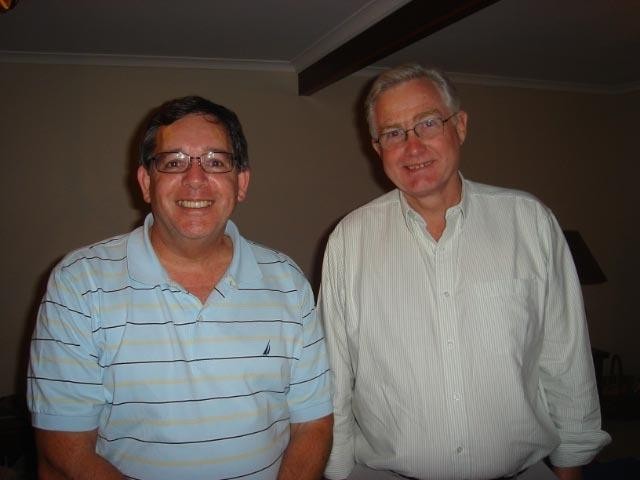Commandant Henry Miller's descendent comes to Redcliffe
By JOL Admin | 27 August 2009
The first European settlement in Queensland was at Redcliffe, being established as the Moreton Bay Penal Colony in September 1824. The first Commandant was Lieutenant Henry Miller of the 40th regiment. In the years prior to his arrival at Redcliffe, Lieutenant Miller had had a distinguished career. He had served under the Duke of Wellington, fought against Napoleon, taken part in the unsuccessful attack on New Orleans, participated in the Battle of Waterloo as well as being part of the army of occupation in France.
After his time at Moreton Bay, Henry Miller eventually found himself in Hobart, electing to stay when the 40th regiment was moved to India. He remained in government service in Hobart and passed away on 10 January 1866.
His son, Henry Miller (jnr.) had a distinguished and successful business and political career, predominantly in Victoria, raising a large family.
Henry Miller's great, great, great grandson, Quentin Miller lives in Victoria and has had a long standing interest in the family's history and the role that his famous forebear played in the early history of Queensland, however he had never visited Redcliffe.

The John Oxley Library’s Brian Randall with Quentin Miller, during his visit to Redcliffe
So, it was a special event to be part of Quentin Miller's first visit to Redcliffe. He has been hosted by the Redcliffe Historical Society’s Paul Woodcock who has arranged various meetings and visits to some of the relevant historical sites on the Redcliffe Peninsula, in particular those connected with Henry Miller and the early Redcliffe penal settlement. The John Oxley Library’s Brian Randall also had an opportunity to meet Quentin and to explore and learn more about one of our very earliest European residents. The John Oxley Library will certainly be keeping in touch with Quentin as further research uncovers more about this early period in Queensland’s history.
Comments
Your email address will not be published.
We welcome relevant, respectful comments.